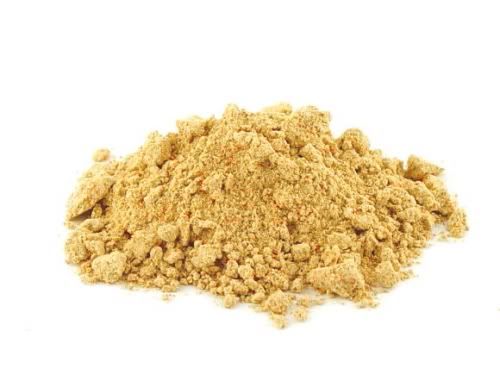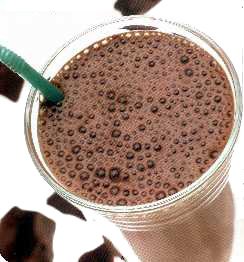
All About Protein
Protein is our mainstay during the weight-loss phase, so it's important to know all about it.
How do we know which one is the best? What do we look for? How much do we absorb? There are a lot of protein powders to learn about but there is more to protein than just powder.
I've done your homework for you...so here is the whole scoop on protein powders as well as whole food protein.
You will find recipes, shakes, and other protein information in various sections.
what you don't know about protein
 THIS IS WHAT SUPPLEMENT COMPANIES DON'T TELL YOU:
THIS IS WHAT SUPPLEMENT COMPANIES DON'T TELL YOU:
1. They don't tell the difference between Whey Protein Isolate (WPI) and Whey Protein Concentrate (WPC). They just want you to think, “Whey Protein. Good.”
2. They don't tell the Protein Percentage of the Whey Protein Concentrate they use.
3. They don't tell the proportions of WPI and WPC that they use.
4. They don't tell the amount of lactose in their product.
YOU need to know each of these things. For your health. Here's why:
Let's say that:
Supplement A has: 23 grams of WHEY PROTEIN ISOLATE per serving.
Supplement B has 23 grams of 25% Whey Protein Concentrate per serving
Supplement A provides: 20 grams of Protein. 0 grams of lactose1
Supplement B provides: 6 grams of Protein. 14 grams of lactose2
To get 70 grams of actual protein from Supplement B, you would have to consume 11.7 servings, and consume 163 grams of lactose (sugar). That would be 650 calories from lactose (sugar). Perhaps such a supplement isn't such a bargain.
1 There is a fraction of a gram of lactose – less than half a gram, and FDA rules direct rounding down to 0 grams.
2 Even though lactose does not appear on the ingredient list, rather, it is inside the Whey Protein Concentrate. No Whey Protein Isolate is absolutely lactose free, but true WPI has so little lactose as to be no problem even for lactose intolerant patients.
information from: www.UNJURY.com
what's in your protein?

Suppose you went to the grocery store and asked for “ground beef”. The butcher gives you a package and says it's a great buy and won't cost you much money. Great deal right?
Only when you get home you find that the “ground beef” is 35% meat, 50% fat. Not such a deal any more.
So how do you know when you purchase protein powders what you're getting?
Let's take a look at Whey Protein. There is no ingredient that is called just “whey protein”. It's either Whey Protein Concentrate, or Whey Protein Isolate.
- Whey Protein Isolate is almost all protein – at least 90% protein. - Whey Protein Concentrate is lactose, protein, and minerals and can vary a lot.
The FDA only requires that Whey Protein Concentrate be a minimum of 25% protein. When it's 25% protein, what's the rest?
It's 60% lactose. When you get less protein, you get more lactose
– So what is lactose? It's milk sugar. So cheap Concentrate is cheap, but it's not a bargain. Lactose can cause you more problems than fat. Get informed and ...stay tuned for the rest of the story!
information from: www.UNJURY.com
protein myths number 3
 These myths are articles reprinted from Unjury with important facts about protein.
These myths are articles reprinted from Unjury with important facts about protein.
Myth 3: Protein is Protein. Just get the number of grams recommended. (We have even heard this from surgeons and dietitians.)
"Why it’s a myth:
The quality of the protein makes a huge difference. What you need most is complete protein. Some supplements that have a lot of protein only provide a little complete protein. If it isn’t complete protein, your body cannot use the protein for building and replacing cells -- what your heart, and the rest of your body needs. "
* * *
Unjury has been one of my favorite proteins for the past three years. Unjury is high medical quality protein you can trust. Unjury comes in great flavors including chocolate, vanilla, strawberry, unflavored and chicken soup. I love the travel packs for on the go! Unjury has no fat, carbs, or sugar. It has 20 grams per scoop and only 80 calories.
If you have questions or need help, please call Unjury, toll-free, 1 800 517 5111 Monday through Friday, 9 am to 6 pm Eastern time. Or email them at AskTheDietitian@UNJURY.com.
Thank You !
As always, thank you so much for telling others about UNJURY !
protein myths number 2
 This myth regarding protein is reprinted from Unjury Medical Quality Protein.
This myth regarding protein is reprinted from Unjury Medical Quality Protein.
Myth 2: I’m at the solid food stage. That means I’m off supplements.
"Why it’s a myth:
First, when the doctor’s office says you can move on to solid foods after surgery, that doesn’t automatically mean to stop using supplements. The ASMBS (American Society for Metabolic and Bariatric Surgery) has issued recommendations that patients get 60 to 80 grams of quality protein each day.
Can you get that much protein from food? Well, you would need, for example, this much each day:
10 ounces (almost two-thirds of a pound) of chicken or beef (the weight after cooking shrinkage)
OR 10 eggs
OR 14 containers of Yoplait Original Strawberry yogurt
That’s hard to do...What if you don’t get enough protein?
First, reread the story about the man with the thinning heart walls below.
Then, remember that protein is key to not being hungry -- and not being hungry is key to losing weight2. We regularly hear from patients and from surgeons’ offices, and even read in the newspaper about patients who had surgery one or more years ago, who are now gaining weight or who have hair falling out.
Please do get the recommended amount of protein for the rest of your life. Every day."
Reprint from Unjury Protein, to find out more see www.Unjury.com
_________________________________________________________________________________________
2 "A number of short-term studies indicate that protein intake exerts a more powerful effect on satiety than either carbohydrate or fat..." Dietary Reference Intakes for Energy, Carbohydrate, Fiber, Fat, Fatty Acids, Cholesterol, Protein, and Amino Acids (Macronutrients) (2005) Food and Nutrition Board (FNB)
Paddon-Jones D, Westman E, Mattes RD, Wlfe RR, Astrup A, Westerterp-Plantenga M. Protein, weight management, and satiety. Am J Clin Nutr 2008 ; 87(5): 1558S-15561S.
Weigle DS, Breen PA, Matthys CC, et al. A high-protein diet induces sustained reductions in appetite, ad libitum caloric intake, and body weight despite compensatory changes in diurnal plasma leptin and ghrelin concentrations. Am J Clin Nutr 2005 ;82:41-8
Leidy HJ, Carnell NS, Mattes RD, Campbell WW. Higher protein intake preserves lean mass and satiety with weight loss in pre-obese and obese women. Obesity (Silver Spring) 2007;15:421-9
myths about protein
 The following myth is reprinted from Unjury Protein and provides valuable information regarding protein.
The following myth is reprinted from Unjury Protein and provides valuable information regarding protein.
“Why it’s a myth:
Protein is essential to every part of your body. When you don’t consume enough protein, your body gets what it needs by taking away more protein from your muscles and organs—to use it for building and repairing elsewhere. Eventually your muscle and organ tissue weaken.
The New York Times "Diagnosis" column1 told the story of a man with severe chest pain who had been on a restrictive diet without medical advice. In the ER, they first thought it was a heart attack, but it wasn’t. It was a case of malnutrition. "Malnutrition can eat away heart muscle." He wasn’t getting enough protein to his heart. The walls of the left side of the man’s heart were thin and weak...painfully, and dangerously weak.” *
*Unjury Medical Quality Protein reprint from email
To find out more about Unjury Protein www.unjury.com
1 The New York Times, October 10, 2004 “Diagnosis" by Lisa Sanders, MD
